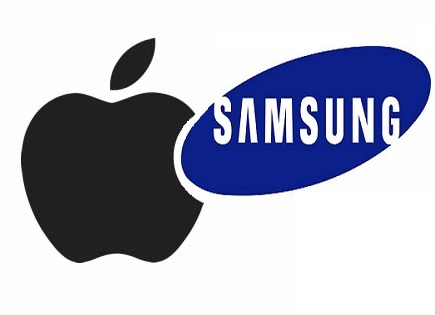The rivalry between Apple and Samsung is not just about who makes the best phone or who has the largest market share. It is a power struggle between two of the world’s biggest tech companies, and its impact goes far beyond the technology industry.
Apple-vs-Samsung: The Battle for Tech Supremacy
The competition between Apple, based in the United States, and Samsung, based in South Korea, is reshaping geopolitics in profound ways. The race for dominance in the smartphone and electronics market has led to increased tensions between nations, shifted economic power, and influenced international trade policies.
Apple and Samsung have been competing for years to lead the global tech industry, and this competition has extended to every corner of the world. From manufacturing to innovation, both companies are constantly pushing the limits of technology, and this battle is affecting how countries align themselves economically and politically. This clash for dominance is not just about selling phones—it’s about controlling the technology that powers the modern world. The implications of this rivalry are being felt in government policy, trade agreements, and even international relations.
Global Supply Chain and Trade Tensions
One of the key ways the Apple-Samsung rivalry has affected geopolitics is through the global supply chain. Both companies rely heavily on complex supply networks that span multiple countries. These networks are essential for producing the cutting-edge devices that consumers demand. However, this reliance on global supply chains has made both companies vulnerable to trade wars and economic conflicts between nations.
For example, the United States and China have engaged in a trade war in recent years, which has put pressure on companies like Apple that depend on Chinese manufacturing for their products. Similarly, Samsung, with its deep ties to South Korean and Southeast Asian manufacturing, has had to navigate tensions in the region, especially with Japan and China. As a result, the supply chains of these tech giants are increasingly caught up in geopolitical disputes.
This dynamic is causing countries to reconsider their trade policies, particularly in relation to technology. Governments are becoming more protective of their industries and are imposing tariffs and regulations that affect the operations of global companies like Apple and Samsung. As a result, the rivalry between these two tech giants has contributed to reshaping the global trade landscape, influencing how countries interact economically.
UAE is Aiming to be the Next Semiconductor Hub
The Race for 5G and Tech Innovation
Another major battleground between Apple and Samsung is in the race for 5G technology. Both companies are heavily invested in developing and deploying 5G networks, which are essential for the next generation of smartphones and other connected devices. The development of 5G has become a central issue in the rivalry between Apple and Samsung, as both seek to lead the way in this critical technology.
The competition over 5G has geopolitical implications because of how crucial this technology is for national security and economic growth. Governments around the world are racing to secure their own 5G infrastructure, and the success of Apple and Samsung in this space will influence which countries gain the upper hand in technological innovation. This race for 5G leadership is also pushing governments to form alliances with tech companies and other nations to ensure they remain competitive on the global stage.
How Apple is Disrupting India’s Tech Landscape
As Apple and Samsung continue to innovate and invest in advanced technologies, they are reshaping the tech landscape and influencing the policies of nations. Their dominance in the 5G market will not only affect consumers but also how countries position themselves in the global economy. The importance of tech innovation in modern geopolitics cannot be overstated, and the rivalry between Apple and Samsung is at the heart of this shift.
Economic Impact and National Strategies
The economic power of Apple and Samsung has made them central players in their respective countries’ economies. The success of these companies is directly linked to the economic strategies of both the United States and South Korea. Apple’s dominance in the tech industry has made it one of the most valuable companies in the world, and its influence is felt in various sectors, from manufacturing to research and development. Similarly, Samsung’s success has been crucial to South Korea’s economy, making it a national champion and a symbol of the country’s technological prowess.
Both countries see the success of Apple and Samsung as essential to their economic futures, and this has led to governments providing support and protection to these companies. For example, both the U.S. and South Korean governments have implemented policies aimed at boosting the competitiveness of their tech industries, often with a focus on supporting their national champions. This has also led to heightened tensions between countries as they compete for technological superiority.
Apple-vs-Samsung: Technology Competition
The rivalry between Apple and Samsung has also influenced how other countries develop their own national strategies for technology. Governments around the world are taking note of the importance of having a strong tech industry, and many are investing in their own companies to ensure they can compete with giants like Apple and Samsung. This competition for technological leadership is reshaping how countries approach their economic policies, and it is influencing the broader geopolitical landscape.
The ongoing competition between Apple and Samsung is much more than a business rivalry. It is reshaping global geopolitics in fundamental ways. From influencing international trade policies to driving innovation in 5G technology, the battle for tech supremacy between these two giants is having far-reaching consequences. The global supply chain is being impacted, trade tensions are rising, and nations are rethinking their economic strategies as they seek to remain competitive in a tech-driven world.
As Apple and Samsung continue their race for dominance, the world watches closely, as the outcomes of this rivalry will have a lasting impact on the global stage. The fight between these two companies is not just about who sells more smartphones—it’s about who controls the future of technology. And in today’s world, that control is key to shaping the political and economic power of nations.





